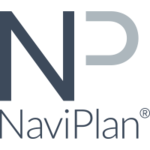Description

Kitt

Ledgy
Comprehensive Overview: Kitt vs Ledgy
As of my last update, Kitt and Ledgy are software products that cater to different niches within the tech space but generally focus on providing tools for businesses and startups. Here’s a comprehensive overview of each:
Kitt
a) Primary Functions and Target Markets
Kitt is generally aimed at providing AI-driven solutions for businesses. It may not refer to a single product but could be part of various applications, often involving a focus on automation, improving customer service, or optimizing internal processes through AI. If you are referring to a specific product called Kitt, details might vary, but it typically targets:
- Startups and Small Businesses: To help streamline operations through automation.
- Industries Utilizing AI: Various sectors looking to integrate AI solutions, such as finance, retail, or customer service.
b) Market Share and User Base
There may not be specific data available on Kitt as a market leader due to its likely integration into broader AI solutions rather than as a standalone product. Its user base would primarily consist of businesses and industries looking to adopt AI to enhance productivity or customer engagement. Market penetration would depend on its specific application and geographic reach.
c) Key Differentiating Factors
- AI-Driven Capabilities: Focus on automation and machine learning.
- Customizability: Offers tailored solutions for specific business needs.
- Integration: Ability to integrate with existing business systems and processes.
Ledgy
a) Primary Functions and Target Markets
Ledgy is a prominent equity management platform designed primarily for startups and scale-ups. It helps businesses manage their cap tables, employee equity, and investor relations efficiently. Target markets include:
- Startups: Especially in the technology sector.
- Venture-backed Companies: Those who need meticulous management of shares and stakeholders.
- Venture Capital Firms: Who manage portfolios and need transparency regarding equity structures.
b) Market Share and User Base
Ledgy has positioned itself strongly within the European market, particularly favored by tech startups that require robust tools to manage equity. While specific market share details might not be publicly available, Ledgy is well-regarded in the startup community for its specialization in equity management.
c) Key Differentiating Factors
- Focus on Equity Management: Specialized in handling complex equity structures, which differentiates it from other startup tools.
- User-Friendly Interface: Designed to be accessible for non-experts in financial management.
- Compliance and Legal Integration: Assists in maintaining compliance with regional and international laws regarding equity.
Comparison and Summary
- Primary Functions: Kitt focuses on AI-driven solutions, while Ledgy is dedicated to equity management for startups.
- Target Markets: Kitt appeals broadly across industries with an interest in AI, whereas Ledgy focuses specifically on tech startups and venture-backed companies.
- Market Share: Both have specific niches – Kitt in AI applications and Ledgy in equity management. Ledgy is noted for its strong user base among European startups.
- Differentiating Factors: Kitt’s strength lies in its AI capabilities, while Ledgy distinguishes itself through specialized equity management features.
Both platforms cater to different needs, and potential clients would choose them based on whether they require AI-driven business optimizations or structured equity management solutions.
Contact Info

Year founded :
Not Available
Not Available
Not Available
United Arab Emirates
Not Available

Year founded :
2017
+41 44 585 21 23
Not Available
United Kingdom
http://www.linkedin.com/company/ledgy
Feature Similarity Breakdown: Kitt, Ledgy
As of my last update, Kitt and Ledgy are both designed to support startups and growing businesses, but they focus on different aspects of business operations. Let’s break down their feature similarities and differences:
a) Core Features in Common
Both Kitt and Ledgy primarily focus on aiding startups but have overlapping features to some extent. Common core features may include:
-
Equity Management: Both platforms offer features that help manage and track equity and cap tables. This includes maintaining clear records of shareholder’s equity, managing stock options, and tracking ownership percentages.
-
Collaboration Tools: They may provide collaboration tools that allow team members, investors, and other stakeholders to access relevant documents and information.
-
Compliance and Legal Support: They often ensure that businesses comply with legal standards concerning equity management and documentation.
b) User Interface Comparison
-
Kitt: Kitt’s user interface is generally designed to be intuitive with a focus on simplicity. It's crafted to cater to the operational facets of startups, aiming to provide a seamless experience for managing various business functions. This includes dashboards that are easy to navigate and work through for daily management tasks.
-
Ledgy: Ledgy typically offers a more visually structured interface possibly with more focus on detailed analytics and dashboards specific to equity management. The design aims to facilitate understanding complex ownership structures and detailed insights for financial forecasting.
c) Unique Features
-
Kitt:
- Integrated Business Management: Kitt may offer a broader range of business management options beyond equity, including HR and financial management tools, depending on its full stack.
- Automation: There may be specific automation features that help streamline routine business processes more broadly, enhancing operational workflows.
-
Ledgy:
- Advanced Equity Tools: Ledgy is known for offering comprehensive tools for equity plans, including vesting schedules, scenario modeling, and ESOP (Employee Stock Ownership Plan) management.
- Investor Relations: Features could include tools specifically designed for investor relations, providing detailed insights and reports to investors with custom access rights.
In summary, while there is some overlap in core features related to equity management, each has its own unique offerings and strengths. Choosing between them would depend largely on the specific needs related to equity management or broader business operations of the startup.
Features

Not Available

Not Available
Best Fit Use Cases: Kitt, Ledgy
Kitt
a) Best Fit Use Cases for Kitt
Types of Businesses or Projects:
Kitt is best suited for businesses or projects looking for a flexible, scalable office space solution, particularly those that want to enhance their office experience and create a customized workspace environment. It caters to:
- Growing Tech Startups: Startups in the tech industry looking for scalable office solutions where they can adjust the space as they grow.
- SMEs (Small and Medium Enterprises): SMEs that need a professional office setup without the long-term commitment of traditional real estate leases.
- Creative Agencies: Companies in the creative industries, such as marketing, design, or media, that value a unique, branded office space to reflect their culture.
- Innovation Labs: Corporations that want to create innovation hubs or labs where teams can collaborate outside the standard corporate setting.
Use Case Scenarios:
- Customization and Branding: Businesses aiming to create a highly customized and branded physical environment that aligns with their identity and culture.
- Flexible Leasing: Companies that require flexibility in terms of leasing—being able to scale up or down depending on their headcount needs or project requirements.
- Employee-Centric Design: Organizations that prioritize employee satisfaction and productivity through tailor-made office environments, with a focus on wellness and collaboration.
d) Catering to Different Industry Verticals or Company Sizes
Kitt primarily targets tech startups, creative industries, and innovative SMEs, which are typically flexible, adaptive, and value a strong company culture. The scalability and customization aspects of Kitt make it appealing to businesses in fast-paced, dynamic sectors where growth needs and brand identity are crucial.
Ledgy
b) Preferred Use Cases for Ledgy
Types of Businesses or Projects:
Ledgy is primarily designed for businesses that need to manage equity and ownership more effectively, focusing on simplifying the intricacies of equity management processes. It is ideal for:
- Tech Startups: Startups in their scaling phase seeking to manage employee ownership distributions and investor relations efficiently.
- Scale-ups: Companies experiencing rapid growth and needing a robust system for managing complex cap tables, equity splits, and various funding rounds.
- Venture-Backed Enterprises: Businesses with multiple investors, requiring precise management of shareholder agreements and compliance.
- International Companies: Organizations operating across different countries, dealing with diverse regulatory and compliance requirements concerning equity.
Use Case Scenarios:
- Cap Table Management: Ensuring accurate, up-to-date cap tables, especially during fundraising rounds or when onboarding new investors.
- Employee Stock Ownership Plans (ESOPs): Managing employee equity plans efficiently, providing transparency and clarity to employees about their stock options.
- Investor Relations: Streamlining communication and shareholding structure transparency for current and potential investors.
- Regulatory Compliance: Ensuring compliance with various international equity management regulations, which is crucial for companies with a global presence.
d) Catering to Different Industry Verticals or Company Sizes
Ledgy targets startups and scale-ups in the tech and innovation sectors, which often have complex shareholder structures and active investment activities. It equally serves larger corporations that require meticulous equity management due to legal and financial implications of international operations. Its functionality addresses the administrative, legal, and strategic needs of companies handling equity distribution, making it invaluable for growth-focused organizations across various verticals, including fintech, biotech, and SaaS platforms.
Pricing

Pricing Not Available

Pricing Not Available
Metrics History
Metrics History
Comparing teamSize across companies
Conclusion & Final Verdict: Kitt vs Ledgy
To provide a comprehensive conclusion and final verdict for Kitt and Ledgy, we'll evaluate both products, highlighting their strengths and weaknesses, and offer tailored recommendations for potential users.
Conclusion and Final Verdict
a) Considering all factors, which product offers the best overall value?
Best Overall Value: Ledgy
Ledgy tends to offer a more comprehensive equity management solution with features that cater to a broader range of users, from startups to larger enterprises. Its value lies in its scalability, integration capabilities, and user-friendly interface, making it an excellent choice for companies planning to grow.
b) Pros and Cons of Choosing Each Product
Kitt:
-
Pros:
- Simple and Intuitive: Kitt is known for its ease of use, making it accessible for small businesses and startups that require straightforward equity management solutions.
- Affordable: Typically offers a more budget-friendly pricing structure, ideal for small teams looking to manage costs.
- Focused Features: Offers a focused set of features that cater specifically to small team needs without overwhelming users with complexity.
-
Cons:
- Limited Scalability: May not be suitable for larger companies or those expecting rapid growth, as its features might not scale with increased demands.
- Integration Limitations: Could have fewer integration options with other platforms and tools compared to more comprehensive solutions.
Ledgy:
-
Pros:
- Comprehensive Feature Set: Ledgy offers robust tools for equity management, including cap table management, modeling scenarios, and integration options with various platforms.
- Scalability: Suitable for companies of varying sizes, from startups to larger enterprises, facilitating long-term growth.
- Analytics and Reporting: Provides advanced analytics and reporting features that can assist in strategic decision-making.
-
Cons:
- Complexity: The extensive features might be overwhelming for very small companies or those without dedicated financial teams.
- Higher Cost: The comprehensive features and scalability might come at a higher price point, which could be a consideration for startups with tight budgets.
c) Recommendations for Users Deciding Between Kitt and Ledgy
-
For Small Startups or Teams with Limited Needs: Consider starting with Kitt if cost is a primary concern and the business primarily needs basic equity management without the complexity of broader features. Kitt's simplicity and affordability make it a practical choice for small, budget-conscious teams.
-
For Growing Companies or Those Requiring Advanced Features: Opt for Ledgy if your company anticipates growth and requires more robust features. The platform's scalability and comprehensive toolset will support evolving needs, allowing for seamless transitions as the company expands.
-
Specific Considerations:
- Evaluate the current size and expected growth trajectory of your company. If rapid expansion or additional funding rounds are in the plans, Ledgy's advanced features may be more beneficial in the long run.
- Consider the level of integration needed with other systems (e.g., HR, financial software) and choose accordingly, as Ledgy typically offers broader integration capabilities.
- Assess the team's capacity to manage complex platforms versus needing simple, easy-to-use tools that allow for quick deployment and management with minimal learning curves.
By weighing the pros and cons against your specific business requirements, you'll be better positioned to select the equity management solution that provides the best value for your current and future needs.



